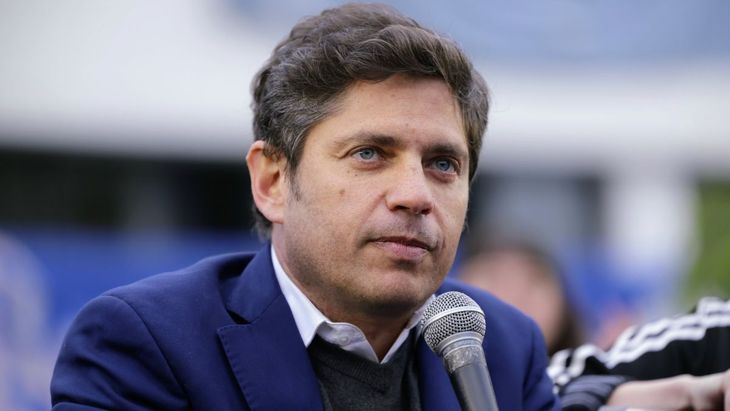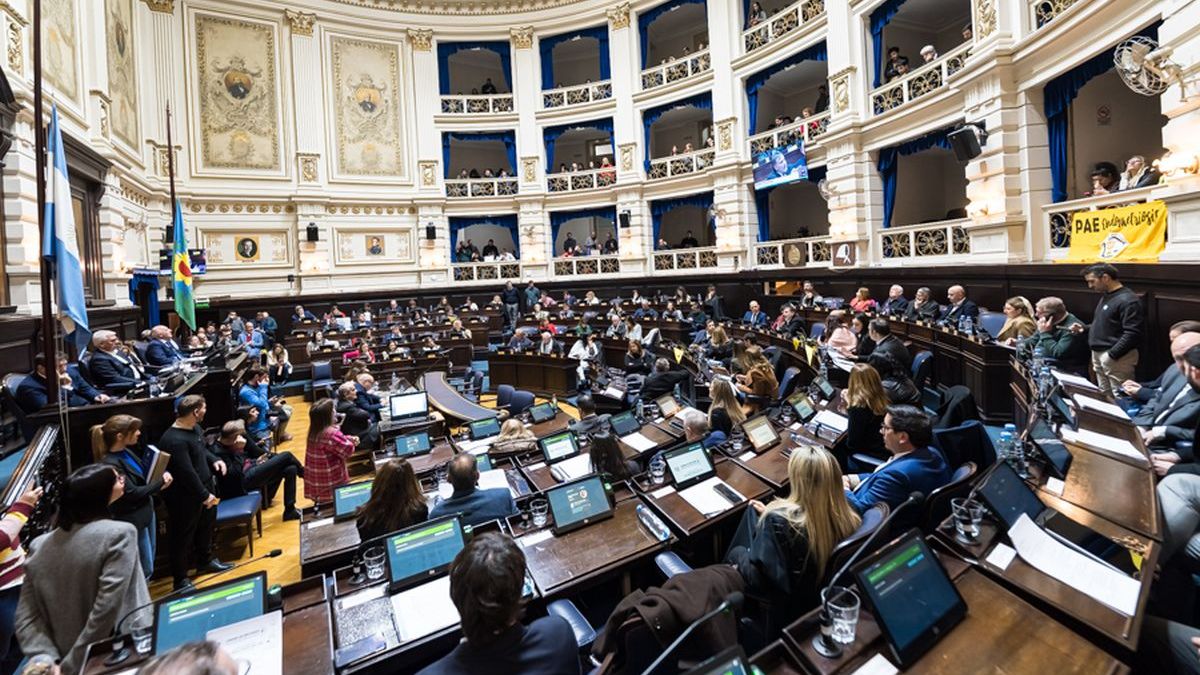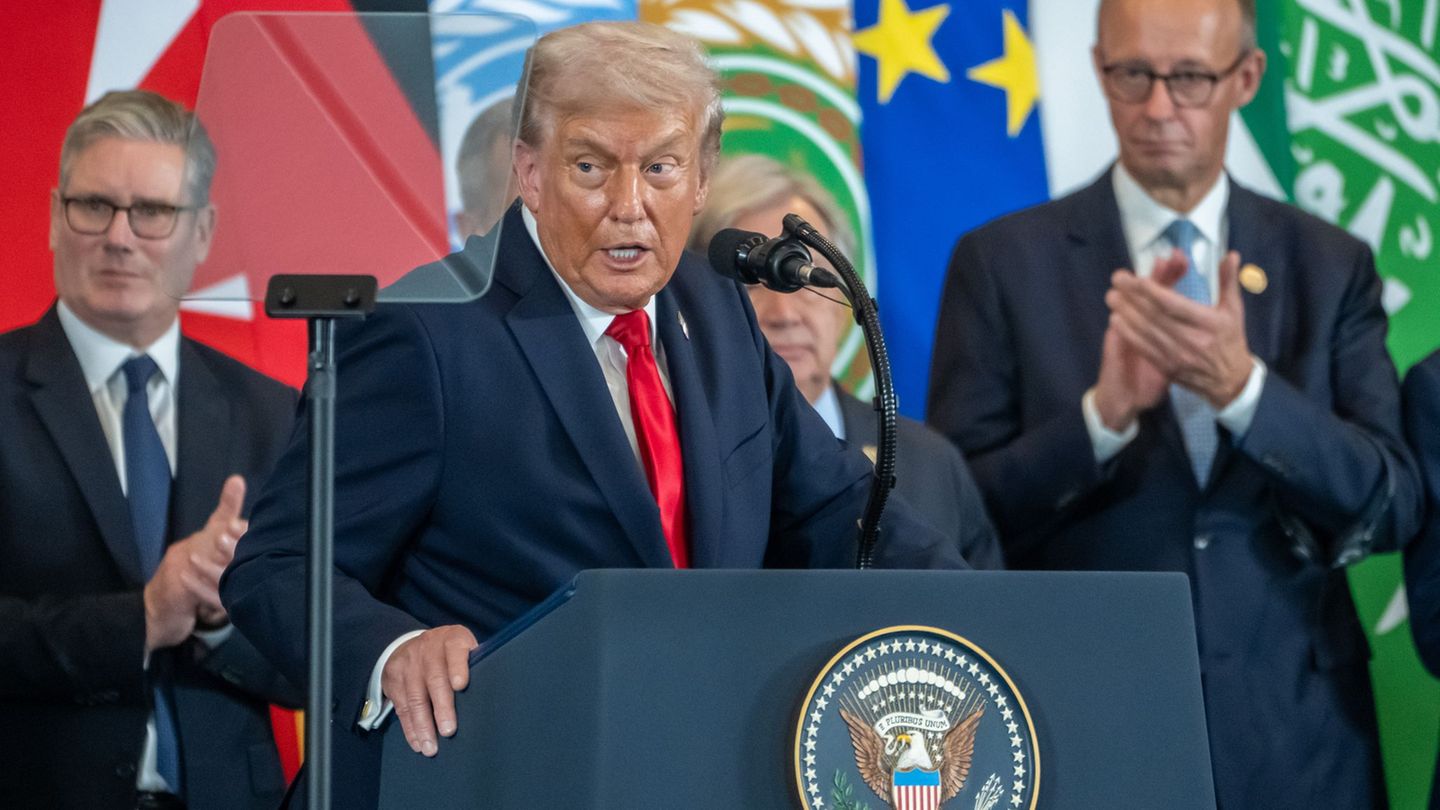The proposals, which were submitted by the Chamber of Deputies, It foresees a primary deficit of 628,680 million pesos, a financial deficit of 1,486,271 million and authorization to take on new debt for 1,156,806 million pesos.
“In this 2025 Budget Project, the priorities are to consolidate the provincial State as a shield against the policies of the national Government, while we continue to bet on a future of development and inclusion throughout the Province. In this sense, investment in essential functions will increase by a real 36% compared to 2024, reaching a level close to double that registered in 2019 in constant values; while capital investment will reach 7.8% of total spending, which expresses the continuity of this management model of the Province: productive, inclusive and integrated, guaranteeing a sustainable fiscal path”, Lopez highlighted.
As to social inclusion$409,039 million will be allocated to the School Food Service; $351,274 million to the MESA program; $370,573 million for the purchase of food; and $40,552 million for social programs focused on children and adolescents.
In health, They will invest $13.5 billion in the Buenos Aires Plan for Prevention, Response and Vaccination against Dengue; $94 billion for continued coverage of the Provincial Cancer Institute; and $200,000 million in the Buenos Aires Medicines Program.
Pablo López.jpg
The Buenos Aires Minister of Economy, Pablo López.
In security$23,575 million will be allocated to strengthening the Neighborhood Approach Force and $10,310 million to combat organized crime.
In education$92,128 million will be used to extend the full day in schools, while $6,674 million will go to the Puentes Program.
In addition, $747,844 million will be allocated to policies with an environmental focus and $1.4 billion to reduce gender inequalities.
In public workthere will be an investment of $2,682,725 million, which includes: $319,089 million to build 4,500 homes and start another 2,000; $424,543 million in road works; $155,348 million in energy; and $408,488 million in water and sanitation infrastructure.
For spare parts and construction of schools, and acquisition of equipment, the budget will be $55.3 billion; for works in Primary Care Centers and hospitals, $25,946 million; $110,311 million for equipment and renovations in the police; $81,221 million to create new places in penitentiary units and wardens; and $18,286 million allocated to the university infrastructure plan.
Finally, the Program to Strengthen Industries and SMEs will have $5,645 million; that of Buenos Aires Markets and Fairs with $2,266 million; that of Improvement of Rural Roads with $1,063 million; and the Provincial Institute of Cooperatives and Associations will have $3,729 million.
It is expected that the initiatives will take parliamentary status tomorrow and that the analysis will begin in commissions, where ministers and the head of ARBA, Cristian Girard, will be summoned to present details about the distribution of resources in each area.
The word of Axel Kicillof
This Monday morning, in a press conference he led at the Government House, the governor Axel Kicillof, explained that “The provincial budget has to adhere to the national macroeconomic estimates,” which makes it “quite complicated because it is riddled with inconsistencies and is a budget written in the air.”
“With these diffuse elements we had to write next year’s budget, but I celebrate and appreciate that the cabinet did a very strong job to demonstrate in the budget that the priorities are guaranteed: health, education, security, public works, generating work, improve the productive apparatus and the well-being conditions of our province even in this complicated situation that exists, which is the liberal-libertarian budget that is part of a government that proposed destroying the State from within,” he continued and asserted that the law of laws of its administration “it seeks to function as a shield, to replace and replace absences and desertions to the extent possible.”
axel kicillof veto universities.jpg

The governor of the province of Buenos Aires, Axel Kicillof.
PBA Press
The Tax Law
Regarding the Tax Law, the Buenos Aires Government stated that “The guideline of the 2025 tax policy is to recognize the efforts of the productive sectors and the tax compliance of the people of Buenos Aires and not to increase tax pressure.”
Thus, the scope of the Gross Income Tax does not change and no rate is modified. It was clarified that only the annual billing amounts that allow MSMEs in the different productive sectors to access the reduced rates are adjusted.
Regarding property taxes, “they are moderately updated without increasing their real burden and consolidating the progressive nature of taxation.”
It was announced for Automobile and Urban Real Estate Tax taxpayers that the bonuses for good taxpayers will be implemented again next year, 5% for those who do not accumulate debt, and for annual payments, 10%, which will be added to those already are in force.
In the case of the Rural Real Estate Tax, the bonuses will be for good compliance, adherence to automatic debit and cuitified item (that the holder of the same associates his Cuit with the rural item before ARBA).
In the Stamp Tax, the structure of the tax or the rates are not modified. By not having its own majority, the ruling party depends on the support of opposition sectors to give light to the initiatives that, at the same time, put pressure on issues such as the implementation of the Single Paper Ballot, appointments to the board of directors of Banco Provincia, the approval by the Senate of some one hundred lists of judicial officials and even a modification of the law that put an end to indefinite re-elections in the province. To this must be added that the mayors will request additional funds for the municipalities affected by cuts in national resources.
“We are willing to discuss anything that arises. We are in emergency. “Willing to negotiate, discuss and reach agreements,” Kicillof said at the conference in which he again rejected the single ballot system approved by the National Congress.
The tensions within Peronism itself can add greater complexity to the negotiations. This year, Kicillof had to manage the extended 2023 Budget, because the national administration did not present macroeconomic guidelines for the year 2024.
Source: Ambito
I’m a recent graduate of the University of Missouri with a degree in journalism. I started working as a news reporter for 24 Hours World about two years ago, and I’ve been writing articles ever since. My main focus is automotive news, but I’ve also written about politics, lifestyle, and entertainment.




